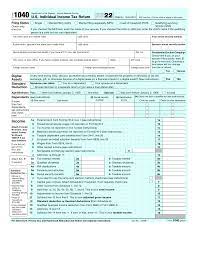 My Google News feed has had dozens, maybe hundreds of articles about the Supreme Court’s decision to dismiss the Laufer v Acheson Hotels case. When written by disability rights advocates the positions are what you’d expect; either “whew we dodged a bullet” or “Laufer has standing and the Court saved itself from a horrible mistake.” Business oriented writers, knowing that if the Court had addressed the issue it would almost certainly have confirmed that Laufer did not have standing, wish the Court had ruled instead of dismissing based on mootness. I found a good analysis of the issues in Dorf on Law but I still haven’t seen what I think is the argument that can save tester standing for the circumstances in which it makes sense without allowing exploitation with the goal of making money.
My Google News feed has had dozens, maybe hundreds of articles about the Supreme Court’s decision to dismiss the Laufer v Acheson Hotels case. When written by disability rights advocates the positions are what you’d expect; either “whew we dodged a bullet” or “Laufer has standing and the Court saved itself from a horrible mistake.” Business oriented writers, knowing that if the Court had addressed the issue it would almost certainly have confirmed that Laufer did not have standing, wish the Court had ruled instead of dismissing based on mootness. I found a good analysis of the issues in Dorf on Law but I still haven’t seen what I think is the argument that can save tester standing for the circumstances in which it makes sense without allowing exploitation with the goal of making money.
We have to start with Haven’s Realty v Coleman. This opinion dates from an era in which it was more or less assumed that if Congress created a statutory injury and you suffered that injury you had standing under Article III of the Constitution. That’s why, when asking whether a tester who had no intent to rent an apartment could still sue under the Fair Housing Act the Court was content to observe that the plaintiff suffered exactly the injury Section 3604(d) was intended to protect against. It never asked whether the injury Section 3604(d) was intended to protect against would always satisfy Article III because that was assumed. Based on Haven’s Realty v Coleman, “tester standing” has no constitutional component. It means no more and no less than the tester suffered exactly the injury the statute was intended to prevent.
The old “statutory injury is good enough for the Constitution” notion ended with TransUnion. Whether the statutory injury satisfies Article III is a separate inquiry from whether the plaintiff suffered a statutory injury because Congress’ ability to create causes of action is limited by the Constitution. If Havens Realty v Coleman went before the Court today it would start with the question of a statutory injury, but then ask whether that injury satisfied Article III of the Constitution.
So what about the Laufer cases? There’s a good argument she suffered the statutory injury. DOJ regulations require information on hotel websites. She looked for the information and it wasn’t there. She suffered the very injury – not having information – that the ADA and regulations were intended to prevent. The question then is whether that injury satisfies Article III of the Constitution. Some Circuits say no because she didn’t need the information. Some say yes because even if she didn’t need the information her dignity was affronted when she learned that the hotel had not complied with DOJ’s regulation. When the issue is squarely presented to the Supreme Court I think it will find there is no standing because the so called “dignitary harm” isn’t enough.
This does not mean, however, that Havens Realty v Coleman is dead. One of the peculiarities of the ADA’s definition of discrimination is that discrimination includes treating everyone exactly the same in ways that only harm those with disabilities. It doesn’t matter that a building or website is the same for everyone and it doesn’t matter whether the design was bad because of a discriminatory intent or because of ignorance. Because of this peculiar definition of discrimination equal treatment is against the law when it comes to building and website design. It is this kind of “no fault” discrimination that makes serial litigation like Laufer’s possible. Just by looking at a defective building or website a plaintiff like Laufer can claim to be a victim of discrimination and that makes filing hundreds or thousands of lawsuits easy.
This makes plaintiffs like Laufer different in a critical way from the Black plaintiff in Havens Realty. The plaintiff in Havens Realty did not just get false information; he got false information while his White fellow tester was being given true information. That difference in treatment because of race was necessary for a statutory violation to exist. False information alone is not actionable under Section 3604(d). The section is violated by giving false information because of race. Plaintiffs like Laufer, on the other hand, do fail to get information or see a physical construction defect because they are disabled; they see what everyone sees; it just (arguably) affects them differently.
Although those in the disability rights community probably won’t admit it, there is a qualitative difference between the offense one feels because of being treated differently and the offense one feels by being treated the same when that same treatment has a different effect. In terms of having one’s personal dignity affronted there is a difference between differential treatment with a discriminatory intent and equal treatment with a differential effect that may not involve any intent to discriminate at all.
This, I think, is the distinction that can and should preserve tester standing. Treating a tester differently because of their race, disability, religion or other protected status creates the kind of dignitary harm that may satisfy Article III even if there is no other harm. Treating a tester exactly the same way everyone else is treated does not create that kind of dignitary harm. A rule like this would permit testing in the ways that it has been traditionally used to root out intentional discrimination but would eliminate the kind of industrial litigation engaged in by Laufer and similar testers under the ADA.


 Several other sources have reported on recent legislation in California that would establish WCAG 2.1 AA as the minimum accessibility requirement for websites that do business in California.¹ The bill is a disaster in many ways, but rather than look at its many individual flaws I think it is useful to ask whether the entire law is invalid as an improper attempt to regulate interstate commerce. That’s right, the “dormant commerce clause” could make this and any similar effort by other states invalid.
Several other sources have reported on recent legislation in California that would establish WCAG 2.1 AA as the minimum accessibility requirement for websites that do business in California.¹ The bill is a disaster in many ways, but rather than look at its many individual flaws I think it is useful to ask whether the entire law is invalid as an improper attempt to regulate interstate commerce. That’s right, the “dormant commerce clause” could make this and any similar effort by other states invalid. In ADA website litigation failure can teach us as much as success, and the plaintiff’s failure in Tavarez v. Extract Labs, Inc., 2023 WL 2712537, at *2 (S.D.N.Y. Mar. 30, 2023) is no exception.¹ Before getting into the details, here’s a primer on the doctrine of “mootness.”
In ADA website litigation failure can teach us as much as success, and the plaintiff’s failure in Tavarez v. Extract Labs, Inc., 2023 WL 2712537, at *2 (S.D.N.Y. Mar. 30, 2023) is no exception.¹ Before getting into the details, here’s a primer on the doctrine of “mootness.” Like death and taxes, serial ADA litigants seem inescapable, but if the lawsuits remain the same the players change from time to time. It’s worth knowing who’s who when you or your client gets sued.
Like death and taxes, serial ADA litigants seem inescapable, but if the lawsuits remain the same the players change from time to time. It’s worth knowing who’s who when you or your client gets sued.